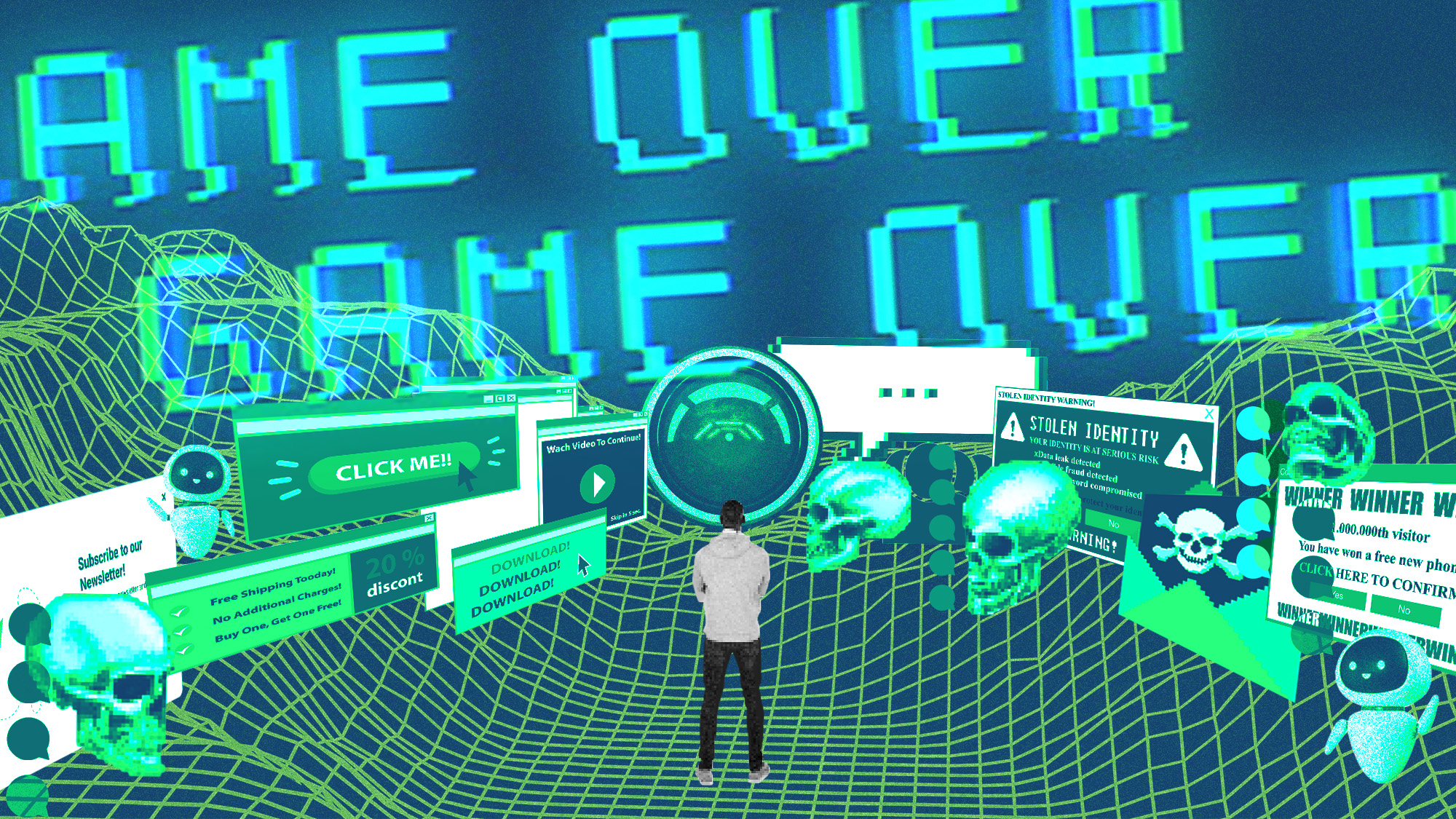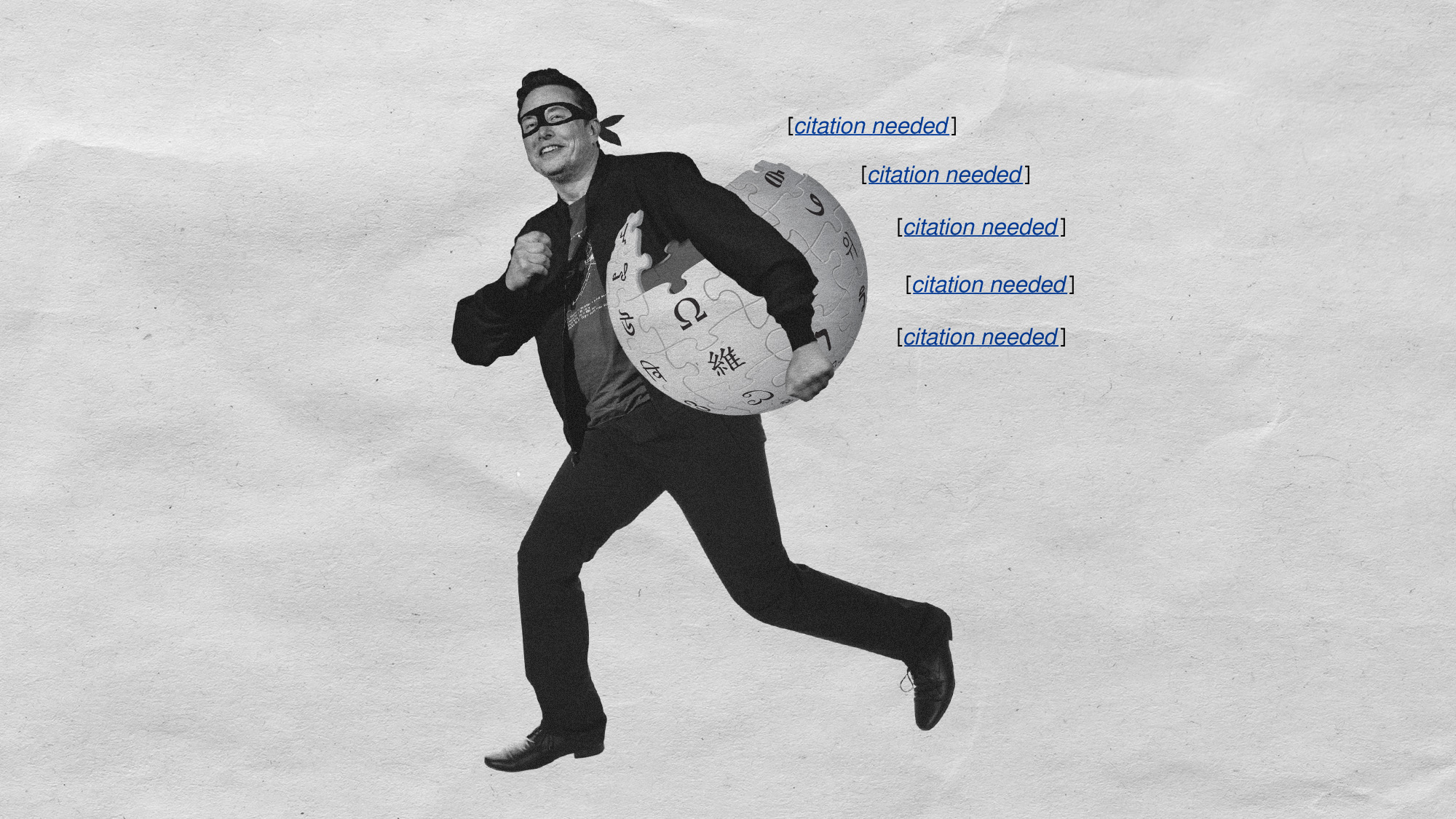What is the dead internet theory?
Reality has 'begun to mirror' the conspiracy that the vast majority of internet activity is generated by bots

A free daily email with the biggest news stories of the day – and the best features from TheWeek.com
You are now subscribed
Your newsletter sign-up was successful
How can you really know who on the internet is real and who is not?
That is the basis of what is known as the dead internet theory, a "joke-cum-conspiracy that says if you're reading these words online, you're the last person on the internet", said Prospect. "Everyone else is a bot."
Dead internet theory posits that the vast majority of internet traffic, posts and users is now being driven by bots and AI-generated content. This, say proponents, is in turn being driven by governments and corporations to shape the direction of the internet and manipulate people for engagement.
The Week
Escape your echo chamber. Get the facts behind the news, plus analysis from multiple perspectives.

Sign up for The Week's Free Newsletters
From our morning news briefing to a weekly Good News Newsletter, get the best of The Week delivered directly to your inbox.
From our morning news briefing to a weekly Good News Newsletter, get the best of The Week delivered directly to your inbox.
When did the theory emerge?
Versions of dead internet theory have been floating around on the fringes of the web in forums such as 4Chan since the late 2010s.
But, according to Forbes, it was "solidified and amplified" in 2021 in a lengthy post entitled "Dead Internet Theory: Most Of The Internet Is Fake". Originally shared on the forum Agora Road's Macintosh Cafe, the post suggested that the internet "died" around 2016 or early 2017, and was now "empty and devoid of people".
The post cited a New York magazine article from 2018 with the headline "How Much of the Internet Is Fake? Turns Out, a Lot of It, Actually", which warned the proliferation of bots was so extreme that some YouTube employees feared the imminent "Inversion". This is the tipping point when the proportion of fake traffic would prompt YouTube's systems to see bots as authentic and humans as inauthentic.
The post, steeped in "unease, paranoia and loneliness," encapsulates a "deep disappointment at the state of the modern internet", said Forbes. Dead internet theory paints a world in which AI has "successfully drowned out the majority of online human activity, reshaping the internet into a more controlled, algorithmic form that exists only to sell products and ideas".
A free daily email with the biggest news stories of the day – and the best features from TheWeek.com
The theory hit the mainstream later in 2021 in an essay for The Atlantic by Kaitlyn Tiffany. "Like lots of other online conspiracy theories, the audience for this one is growing because of discussion led by a mix of true believers, sarcastic trolls, and idly curious lovers of chitchat," she said. But "unlike lots of other online conspiracy theories, this one has a morsel of truth to it".
Is the internet really dead?
The theory "wasn't wrong", said Alex Hern in The Guardian, "it was just too soon". In 2021, the internet "felt" dead because more sophisticated understanding of manipulating algorithms "was driving people to act like robots. In 2024, the opposite has happened," he wrote: "the robots are posting like people".
Hern cites the takeover of Twitter by Elon Musk in 2022 and the release of ChatGPT that same year as just two examples of this shift. Large language models, specifically, have led to an explosion of AI-generated material that mimics human-made content. Were a model like GPT-3 to "get loose", warned Timothy Shoup, of the Copenhagen Institute for Futures Studies, then the internet would be "completely unrecognisable", with 99% to 99.9% of content online AI-generated by 2025 to 2030.
ArsTechnica reported this month that dead internet theory had "come to life" with a new AI-powered social media app, SocialAI, that "takes the social media 'filter bubble' to an extreme with 100% fake interactions".
All this means that even since 2021, when it entered the mainstream, reality has indeed "begun to mirror this once unserious conspiracy", said Prospect.
Low-quality AI-generated content that is filling up social media and search results, from viral images to regurgitated news articles, has come to "dominate our online worlds".
In this way, the web is being "taken over by a global, automated ad fraud system, and whether or not any human sees any of it is entirely irrelevant. The things that generate real value for us are being pushed further and further to the margins, unable to compete with this brutal new algorithmic reality."
Do bots control the internet?
The internet might feel "boring, broken, spammy and algorithmic", said Forbes, but "other than reposting content made by people, bots don't lead the internet in the way the theory suggests – influencers do, and the bots follow their lead".
To this extent, the dead internet theory "might not reflect the reality of the average browsing experience, but it does describe the feeling of boredom and alienation that can accompany it". Like the best conspiracy theories, it has "fictionalised a depressing truth; the internet has been walled off by mega-corporations, and is now beginning to fill up with AI-generated sludge".
If it feels as though the "public-facing net is in the latter stages of a zombie apocalypse", said Hern, the "good news is that there are safe havens". "Private social" activity like WhatsApp and Discord servers, can "hide from the onslaught in secrecy", while smaller communities such as Bluesky and Mastodon are "safe through obscurity, for now".
For the time being, "I expect to see large platforms cotton on to the wasteland their services have become, and use a combination of account verification and AI detection to try and restore some humanity to their offerings. Whether it will be too late by then, though, is an open question."
-
 Tourangelle-style pork with prunes recipe
Tourangelle-style pork with prunes recipeThe Week Recommends This traditional, rustic dish is a French classic
-
 The Epstein files: glimpses of a deeply disturbing world
The Epstein files: glimpses of a deeply disturbing worldIn the Spotlight Trove of released documents paint a picture of depravity and privilege in which men hold the cards, and women are powerless or peripheral
-
 Jeff Bezos: cutting the legs off The Washington Post
Jeff Bezos: cutting the legs off The Washington PostIn the Spotlight A stalwart of American journalism is a shadow of itself after swingeing cuts by its billionaire owner
-
 Why X could face UK ban over Grok deepfake nudes
Why X could face UK ban over Grok deepfake nudesThe Explainer Ofcom is investigating whether Elon Musk’s AI chatbot breached Online Safety Act
-
 Grokipedia: Elon Musk’s Wikipedia ‘rip-off’
Grokipedia: Elon Musk’s Wikipedia ‘rip-off’Talking Point AI-powered online encyclopaedia seeks to tell a ‘new version of the truth’
-
 Is the first AI ‘actor’ the beginning of Hollywood’s existential crisis?
Is the first AI ‘actor’ the beginning of Hollywood’s existential crisis?Today's Big Question 'Tilly Norwood' sparks a backlash
-
 What are the impartiality rules for BBC presenters?
What are the impartiality rules for BBC presenters?The Explainer News presenters and hosts of 'flagship programmes' must adhere to tougher guidelines than other staff and freelancers
-
 Facebook: Sarah Wynn-Williams' shocking exposé
Facebook: Sarah Wynn-Williams' shocking exposéTalking Point Former executive's tell-all memoir of life behind the scenes at Meta 'makes for damning reading'
-
 What's Tucker Carlson's net worth?
What's Tucker Carlson's net worth?The Explainer The far-right media figure has made millions since his embrace of Trumpism
-
 Elon Musk and Wikipedia are feuding
Elon Musk and Wikipedia are feudingThe Explainer The online encyclopedia stands accused of being far-left propaganda
-
 The Onion is having a very ironic laugh with Infowars
The Onion is having a very ironic laugh with InfowarsThe Explainer The satirical newspaper is purchasing the controversial website out of bankruptcy